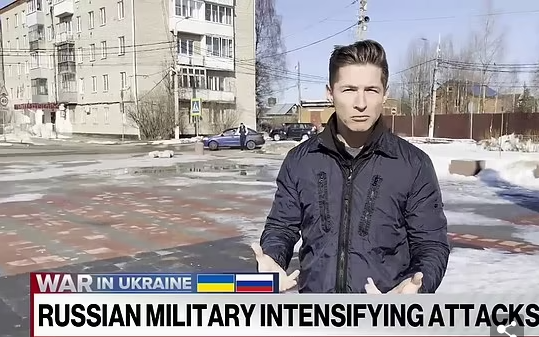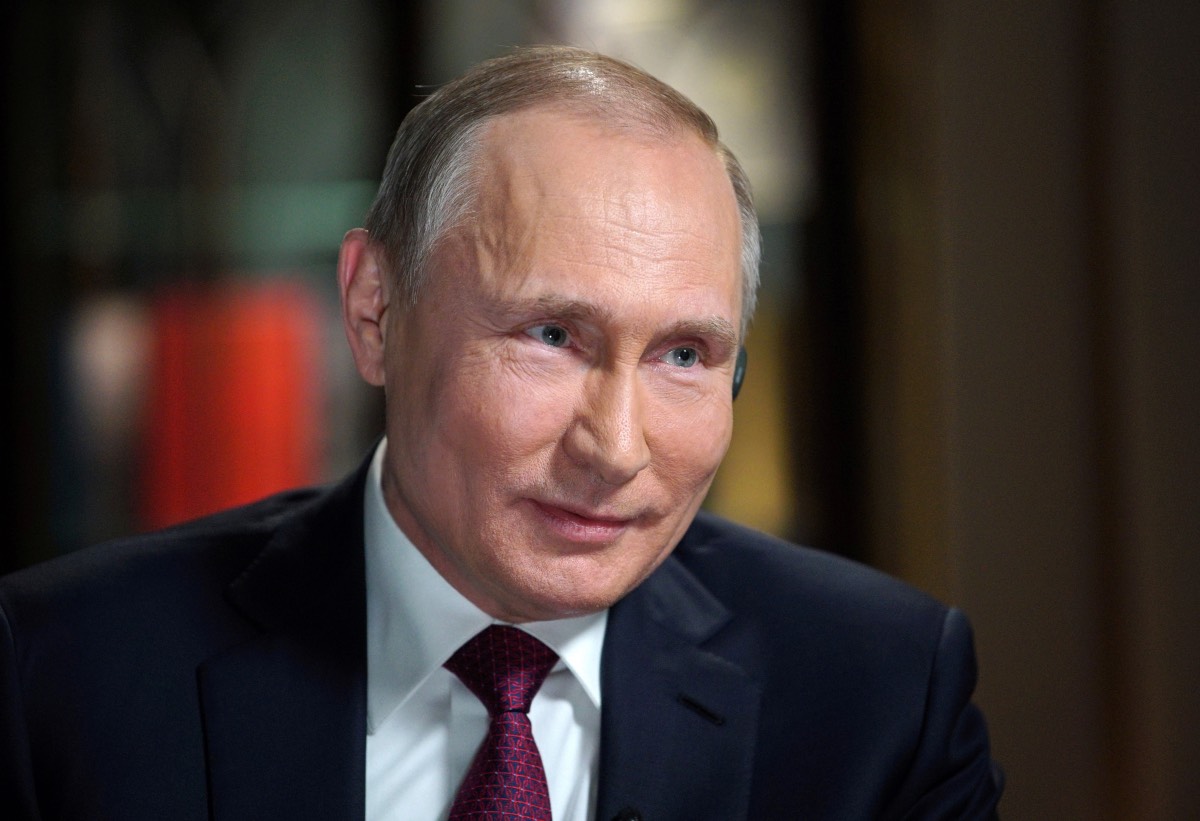CNN International, the global arm of CNN, ABC, and CBS News will stop broadcasting in Russia, after the Kremlin introduced a new law in the country that could jail anyone intentionally spreading ‘fake’ news.
Bloomberg News, the BBC, and Canada’s CBC also said they were temporarily suspending the work of their journalists inside Russia.
Russian officials have said that false information has been spread by enemies such as the United States and its Western European allies in an attempt to sow discord among the Russian people.

Lawmakers in Moscow passed amendments to the criminal code making the spread of ‘fake’ information an offense punishable with fines or jail terms. They also imposed fines for anyone calling for sanctions against Russia following the invasion of Ukraine.
The new legislation was passed by parliament and will become law when Vladimir Putin signs it, as he is widely expected to do. It was not clear when Putin would sign the measure.
It appeared to give the Russian state much stronger powers to crack down, by making it a criminal offense to spread fake information, with a jail term of up 15 years for posting about ‘fake news.’

‘CNN will stop broadcasting in Russia while we continue to evaluate the situation and our next steps moving forward,’ a spokesperson said Friday.
‘The change to the criminal code, which seems designed to turn any independent reporter into a criminal purely by association, makes it impossible to continue any semblance of normal journalism inside the country,’ Bloomberg Editor-in-Chief John Micklethwait said in a statement.
CBS News stated that it is no longer broadcasting from the country: ‘CBS News is not currently broadcasting from Russia as we monitor the circumstances for our team on the ground given the new media laws passed today.’

It was a similar view taken by ABC News, which has several correspondents working in the country currently.
‘Because of the new censorship law passed in Russia today, some Western networks including ABC News are not broadcasting from the country tonight. We will continue to assess the situation and determine what this means for the safety of our teams on the ground,’ the network said.
Several other news organizations including the Canadian Broadcasting CBC and the BBC have also suspended their reporting from Russia following the passing of the law.
‘The CBC is very concerned about new legislation passed in Russia, which appears to criminalize independent reporting on the current situation in Ukraine and Russia,’ the CBC said in a statement posted online.

BBC News has said it will continue its service in Russian from outside of Russia.
‘The safety of our staff is paramount and we are not prepared to expose them to the risk of criminal prosecution simply for doing their jobs,’ BBC Director-General Tim Davie said in a statement. ‘I’d like to pay tribute to all of them, for their bravery, determination and professionalism.
‘It leaves us no other option than to temporarily suspend the work of all BBC News journalists and their support staff within the Russian Federation while we assess the full implications of this unwelcome development.
‘We remain committed to making accurate, independent information available to audiences around the world, including the millions of Russians who use our news services.
‘Our journalists in Ukraine and around the world will continue to report on the invasion of Ukraine.’
Russia has termed its actions in Ukraine a ‘special operation.’
The new law came after foreign ministry spokeswoman Maria Zakharova accused the BBC of playing a ‘determined role in undermining the Russian stability and security.’
Interim BBC News Director Jonathan Munro tweeted: ‘It’s with a heavy heart that we have had to suspend @BBCNews operations in Russia until we assess impact of new laws which outlaw independent journalism.
‘Thoughts with colleagues in Moscow whose voices cannot be silenced for long.’
Munro confirmed the corporation ‘is not pulling out journalists from Moscow.’
He tweeted: ‘We cannot use their reporting for the time being but they remain valued members of our teams and we hope to get them back on our output as soon as possible.’
Russia’s media regulator Roskomnadzor ‘limited’ access to bbcrussian.com and bbcnews.com on Friday.
Other foreign websites have also been blocked, including independent news website Meduza, German broadcaster Deutsche Welle and the Russian-language website of the U.S.-funded Radio Free Europe/Radio Liberty, Svoboda.
Deutsche Welle posted a letter to Russians on its German website saying it regretted the decision and urged readers to bypass the internet blockade.
Voice of America said in a statement that audiences in Russia deserved access to factual news content and it would continue to support tools that allow them to bypass any blocking efforts.
Newspapers, including the Wall Street Journal and Washington Post, appear to be staying put, for now.
‘Our top priorities are the safety of our employees and covering this important story fairly and fully. Being in Moscow, freely able to talk to officials and capture the mood, is key to that mission,’ said a spokesperson for the WSJ.
‘We are assessing the details of the Russian law and its potential impact on our reporting. We intend to exercise caution while seeking clarity about how these reported restrictions would affect Washington Post correspondents and local staff,’ said the Post.
By ordering his forces into Ukraine, President Vladimir Putin has sparked the worst crisis between Russia and the West since the end of the Cold War, battering financial and commodity markets, sending the ruble into a tailspin, and triggering an economic isolation never before visited on such a large economy.
Western governments and tech platforms have also banned the Russian news network RT, with the European Union accusing it of systematic disinformation over Russia’s invasion of Ukraine.
Russia’s Foreign Ministry says that the Western media offer a partial – and often anti-Russian – view of the world while failing to hold their own leaders to account for corruption or devastating foreign wars like Iraq.
Western leaders including British Prime Minister Boris Johnson and former U.S. President Barack Obama have long raised concerns about the dominance of state media in Russia and say the freedoms won when the Soviet Union collapsed have been rolled back by Putin.







